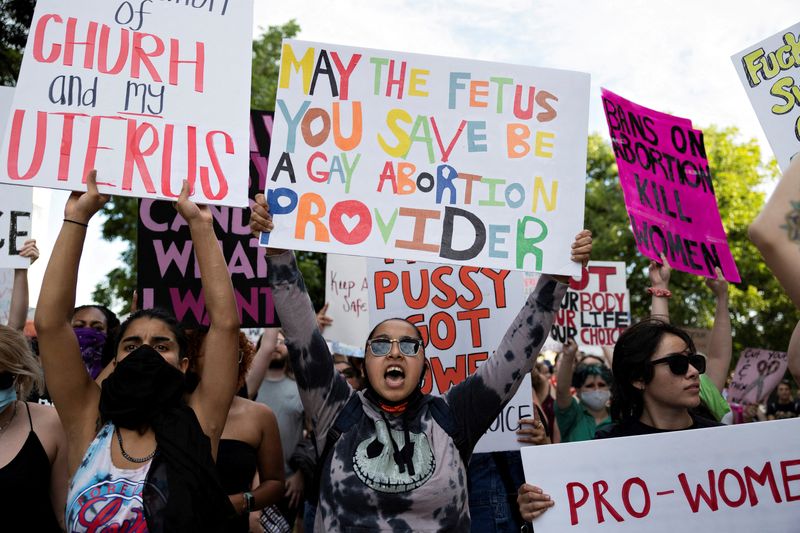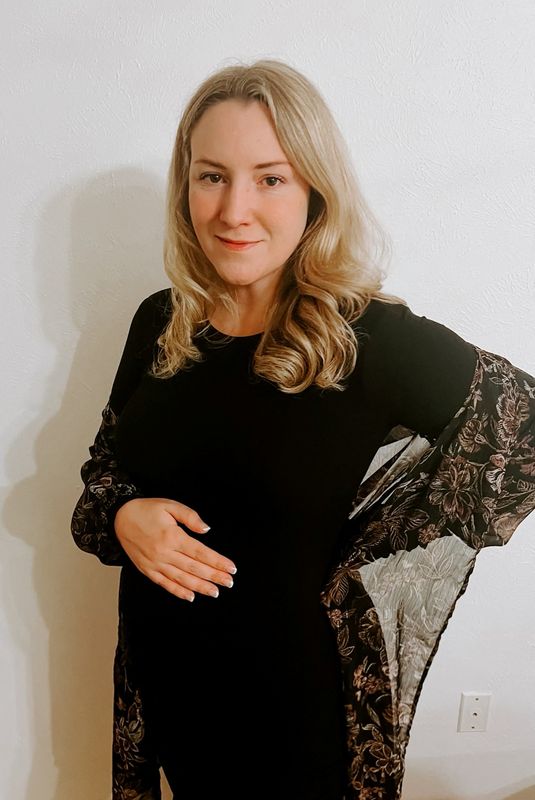By Brendan Pierson
(Reuters) -Monday's ruling from the Texas Supreme Court denying a woman's request for an emergency abortion shines a spotlight on the medical exceptions contained in many U.S. states' abortion bans. Here are some of the most important facts about the case, and what it could mean:
WHAT IS TEXAS' MEDICAL EXCEPTION?
Texas has banned nearly all abortion since the U.S. Supreme Court last June overturned its landmark 1973 Roe v. Wade ruling, which had guaranteed abortion rights nationwide. Texas' ban includes an exception allowing the procedure if, in a doctor's "reasonable medical judgment," the mother has a "life-threatening condition" related to the pregnancy that puts her at risk of death or "substantial impairment of a major bodily function."
IF THERE IS AN EXCEPTION, WHY WAS THERE A LAWSUIT?
Since states began banning abortion last year, doctors and advocates have raised alarms that the medical exceptions are vague, making them difficult or impossible to rely on in practice, because it's unclear how close to death a pregnant woman needs to be for the exception to apply.
In their lawsuit against the state, Kate Cox and her doctor Damla Karsan sought permission to end Cox's complicated, non-viable pregnancy. The lawsuit said that, while Karsan believed in good faith that Cox qualified for the exception, she was unwilling to perform the abortion without a court order because of the steep potential penalties under Texas laws, including loss of her license and life in prison, if Cox was later considered not to have qualified for the exception.
HOW DID THE CASE REACH THE STATE'S HIGHEST COURT?
A judge in Austin granted the court order Cox and Karsan sought, but Texas' Republican Attorney General, Ken Paxton, quickly asked the state's Supreme Court to overrule it and threatened hospitals where Karsan had admitting privileges with prosecution anyway.
While the Supreme Court was considering the case, Cox left the state to get the abortion.
WHAT DID THE SUPREME COURT DO?
The court found that Cox had not shown that she met the specific requirements of the medical exception, and rejected the idea that courts had a role in pre-approving who qualifies for the exception.
It wrote that a woman who meets the exception "need not seek a court order to obtain an abortion," and that the law "leaves to physicians - not judges - both the discretion and the responsibility to exercise their reasonable medical judgment."
WHERE DOES THE RULING LEAVE OTHER PATIENTS?
The ruling only directly affects Cox. However, it gives clues about how the court will rule in a separate lawsuit it is considering, brought by 22 patients and doctors including Karsan, seeking a broader order interpreting the medical exception that could apply to all patients and doctors in Texas.
That case asks the court to shield doctors from prosecution if they believe in "good faith" that an abortion is necessary to preserve the mother's health.
The Supreme Court said in Cox's case that "good faith" was not enough, and that doctors must instead act according to "reasonable medical judgment," signaling how it will likely rule on the core issue in the larger case, in favor of the state.
Essentially, the court is very unlikely to assuage Texas doctors' concerns about providing abortion care pursuant to the medical exception, and patients who have the means will likely continue to leave the state for care.
WHAT ABOUT OTHER STATES?
All states with abortion bans have some form of medical exception. Their language varies, and each state's courts are responsible for interpreting them. There are already signs that the exceptions will be the subject of future litigation.

Planned Parenthood last month asked a court to clarify Indiana's exception, and a trial in that case is scheduled for May. The state's Supreme Court had previously found that its constitution included a right to abortion to preserve the mother's life or health.
In March, Oklahoma's Supreme Court ruled in another lawsuit by Planned Parenthood that said the state's constitution includes a right to abortion to save the mother's life, and that a doctor need not necessarily wait until she is in immediate danger, going further than the exception set out in the state's abortion ban.
